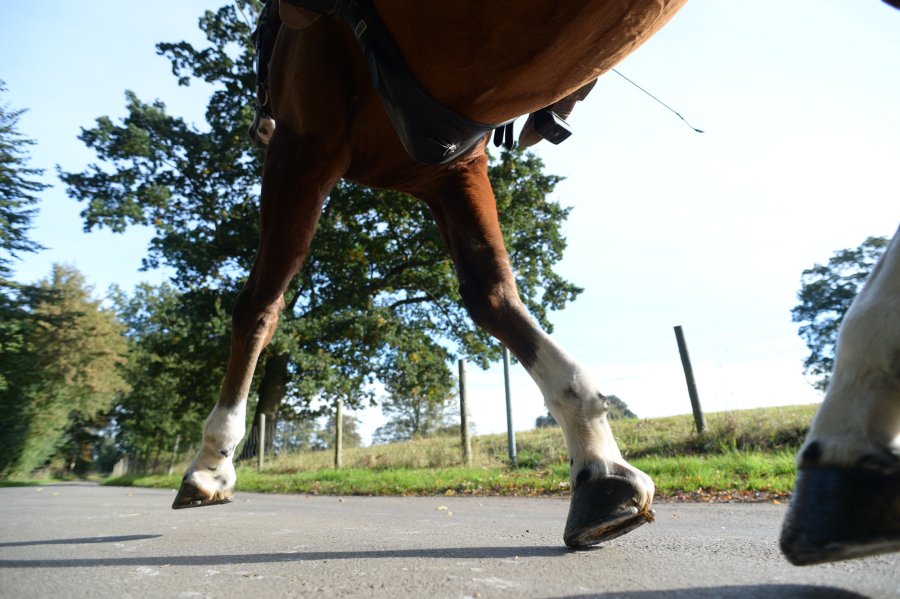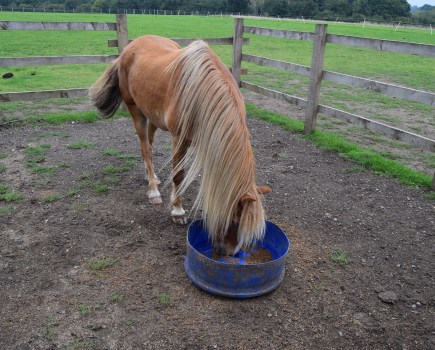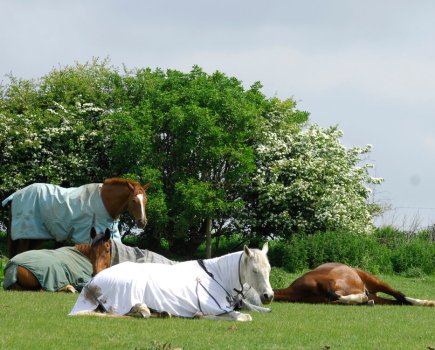You might think that only top-class eventers, show jumpers or racehorses in hard work are at risk, but even the pleasure horse can suffer with a tendon injury.
However, with the right management you can ensure your horse stays in tip top condition.
What makes tendon’s (especially the deep digital flexor and superficial digital flexor tendons) so susceptible to injury, is that your horse has no muscle in his lower legs, so it’s no wonder that these flexible cords of connective tissue can break down if put under too much strain.
But before you go and dramatically reduce your horse’s workload or start to develop an obsessive compulsive disorder about protecting his legs, there are lots of simple ways to prevent damage that won’t mean changing his whole routine or your style of management.
There are many types of tendon injury, however, the signs might not be obvious straight after the cause.
Like an elastic band, if your horse’s tendons are stretched too far, they can become weak and damaged. Here Gil Riley explains how to take care of your horse’s legs
“Tendon damage is usually a result of a long-term chronic process,” says vet Gil Riley. “When a horse shows lameness, the damage has usually been due to a build-up of recurring low-grade tendon fibre troubles.” Here Gil explains the main causes of tendon damage.
1. Greater extension
Any horse can excessively strain a tendon for example after landing from a jump or even sliding on soft or slippery ground. The fetlock is stretched beyond its normal capabilities causing an increase in the stretch of the flexor tendon resulting in damage. Your horse’s tendons can cope with a gradual regular stretch, rather than a sudden overbearing pull.
2. Collagen breakdown
As with humans, when horse’s reach the age of five regardless of fitness, their protein collagen can break down making them more prone to tendon damage than younger animals.
3. Poor foot balance
Whether this be a conformational fault or poor farrier work, a long toe and low heel can cause excessive leverage on the tendons causing stress and damage.
4. Over worked
When a horse is over worked and not fit for his job, the digital flexor tendon is stretched too far and the collagen fibres start to tear and even rupture.
3 ways to prevent tendon trouble
Prevent the onset of any tendon issues with these three simple tips
- Your horse’s fitness is key to keeping his legs sound, so make sure he’s always warmed up correctly and that he’s fit for the job.
- If your horse has been out competing, it’s a good idea to give him the next day off or take him for a leisurely hack, so he can have time to chill-out and recover.
- When schooling or competing don’t let your horse get over tired, as fatigued muscles mean his tendons have to work harder.









